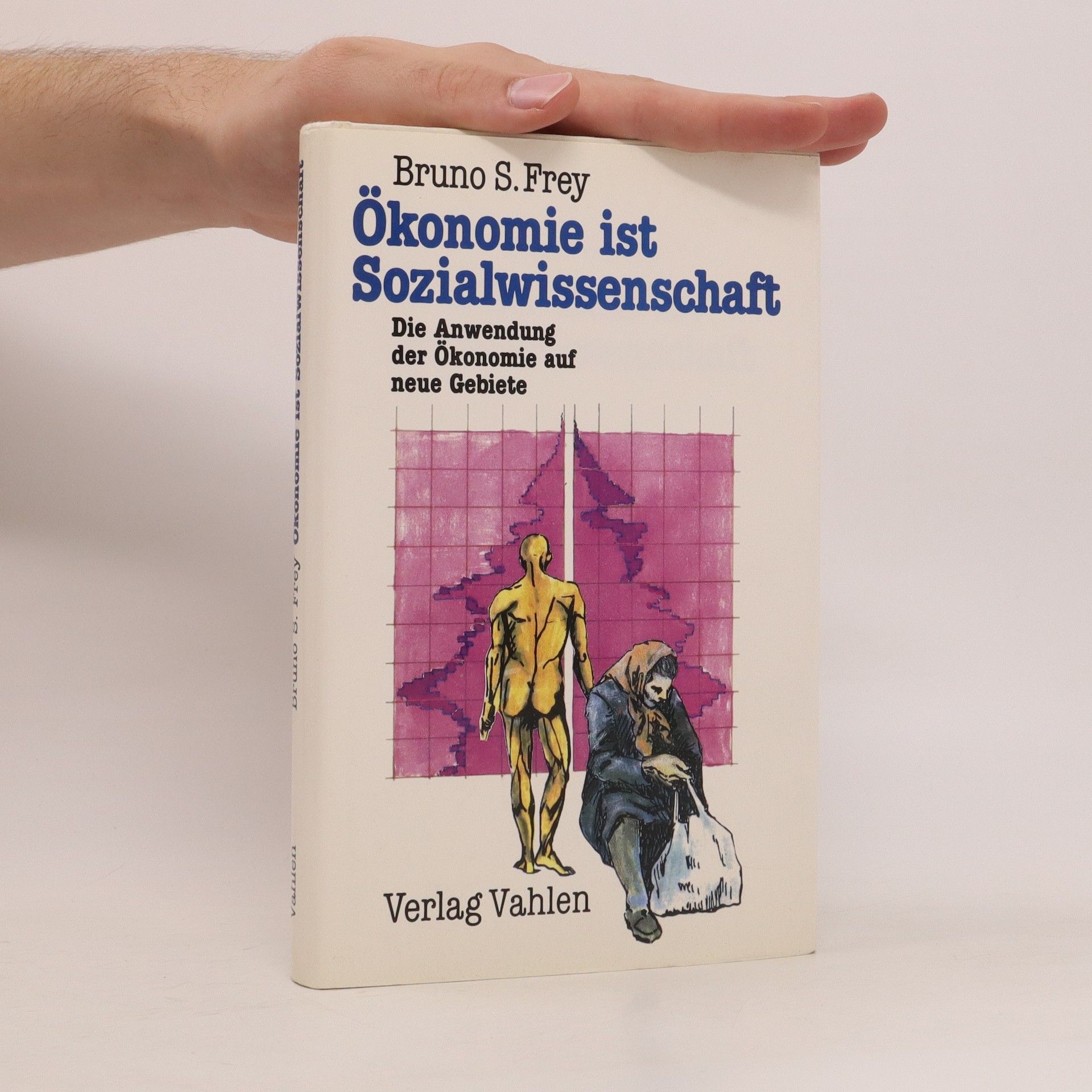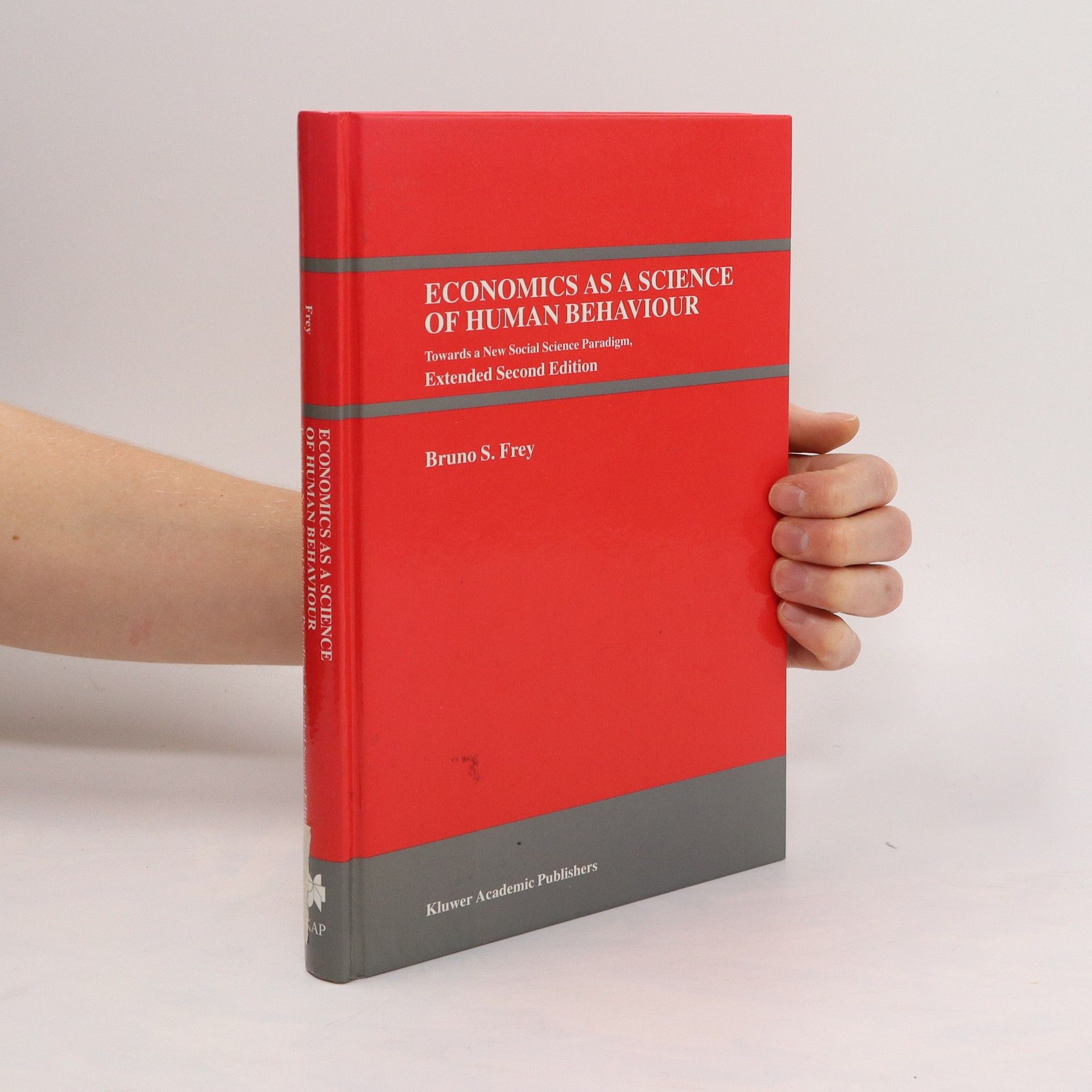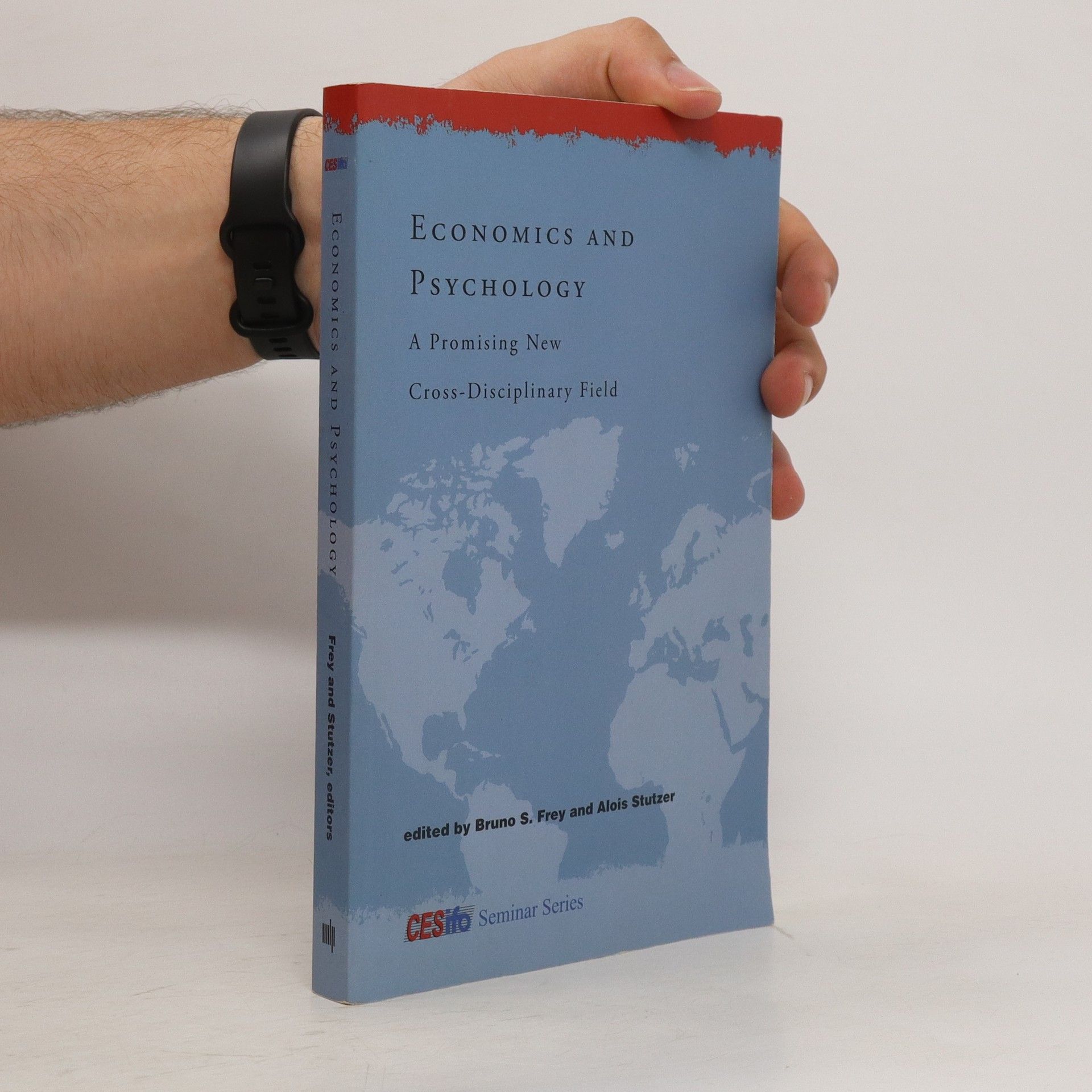Cultural Overtourism highlights the challenges faced by historical sites and museums overwhelmed by tourist crowds, resulting in detrimental impacts on both the sites and local communities. The rising awareness of these issues has led to increased protests and prompted various cultural institutions and cities to implement strategies aimed at controlling tourist influx. The book explores the balance between preserving cultural heritage and managing tourism sustainably.
Bruno S. Frey Livres






Dealing with Terrorism – Stick or Carrot?
- 200pages
- 7 heures de lecture
Coercion or negative sanctions to deter terrorism have little effect and in some important instances are even counterproductive, claims Frey (economics, U. of Zurich), and it is time to consider alternatives to the anti-terrorist policy undertaken by major powers throughout the world. He proposes three specific anti-terrorist policies that use a positive approach and he believes to be viable. They are polycentricity or decentralization to reduce vulnerability to terrorist attacks; positive incentives offered to actual and prospective terrorists not to engage in violent acts; and diverting attention from the terrorist groups. Still not on the table is refraining from conduct that enrages vast populations. Annotation ©2004 Book News, Inc., Portland, OR
Economics as a Science of Human Behaviour
- 268pages
- 10 heures de lecture
Ökonomie ist Sozialwissenschaft
- 223pages
- 8 heures de lecture
Dieses Buch ist eine Einführung in die verhaltensorientierte Ökonomie, die auch unter den Bezeichnungen \"außermarktliche Ökonomie\" oder \"Neue Politische Ökonomie\" oder \"Neuer Institutionalismus\" bekannt ist. In ihm wird die ökonomische Denkweise auf sechs unterschiedliche Gebiete angewandt, die bewußt außerhalb des üblichen Themenkatalogs der Wirtschaft gewählt sind: Natürliche Umwelt: Umweltschutz und Umweltmoral Politik: Arbeitslosigkeit und Nationalsozialismus Kunst: Theater und die Salzburger Festspiele Familie: Patriarchalismus in China Konflikt: Terrorismusbekämpfung durch Verweigerung der Anerkennung Geschichte: Lösegeld für Gefangene Der interdisziplinäre Gehalt dieses Ansatzes wird deutlich. Der Autor setzt sich jedoch auch mit den Grenzen dieser Betrachtungsweise auseinander und gibt einen Ausblick auf Weiterentwicklungen, wobei vor allem ethische und psychologische Aspekte beleuchtet werden.
Venedig ist überall
Vom Übertourismus zum Neuen Original
Kultureller Übertourismus ist das neue Schlagwort für von Touristen extrem stark frequentierte und damit überfüllte historische Sehenswürdigkeiten, Museen und Städte. Ein Kulturtourismus also, der negative Auswirkungen sowohl für die kulturellen Orte als auch für die dort lebenden Menschen zeitigt. In Reaktion darauf wird vermehrt protestiert und Kulturträger und Bürgermeister ergreifen zunehmend Maßnahmen, um den Touristenstrom zu begrenzen. Ist dies das Ende einer „Kultur für alle“?In diesem Buch schlägt Bruno S. Frey - renommierter und vielzitierter Kulturökonom - im Gegenteil eine Erweiterung des Angebotes als „Neue Originale“ vor: Die wichtigsten Monumente werden an einem geografisch geeigneten Ort identisch kopiert. Ergänzend werden den Besuchern mithilfe digitaler Informationstechnologien (Augmented und Virtual Reality inklusive Hologramme) Geschichte und Kultur der Orte nahe gebracht. Angrenzende Hotels, Restaurants und Läden bieten die notwendige begleitende Infrastruktur. Auf diese Weise kann der Touristenstrom zwischen den ursprünglichen und den „Neuen Originalen“ verteilt werden. Diese Idee wird mit seinen organisatorischen und ökonomischen Herausforderungen skizziert und von bestehenden Disneyland-Konzepten abgegrenzt. Gerade für Familien mit Kindern und allgemein kulturell interessierte Personen – also für die größte Zahl der Besucher – können diese „Neuen Originale“ sehr attraktiv sein.
Touha po uznání a úctě je jednou z nejvýznamnějších potřeb, které lidi mají. Ocenění jsou tu od toho, abychom si tuto touhu dokázali uspokojit. Existují jich tisíce a setkáváme se s nimi napříč naší společností: v politice, umění i médiích, ve sportu, náboženství, i v byznysu. Jsou něčím jasně viditelným, co jejich držitelům dodává motivaci a tvůrčí energii. Oproti peněžním či jiným odměnám nabízí množství výhod. Tato kniha za pomoci empirických důkazů a nejmodernějších statistických postupů dokládá, že ocenění dokážou výrazným způsobem zvýšit výkonnost v mnoha různých situacích, a to i tehdy, když jsou zcela symbolické. Ukazuje, jak tyto poznatky užívat v praxi a argumentuje, že v pracovním i v soukromém životě je třeba zdůrazňovat nikoli peněžní či hmotné odměny, ale symbolickou hodnotu zásluh a úspěchů každého jednotlivce. Kniha Ocenění versus peníze se fenoménu udělování cen věnuje z mnoha různých perspektiv, včetně teorie signálů a organizace lidských zdrojů. Otevírá cestu hledání nových způsobů motivace, které přesahují možnosti peněz, ale zároveň ukazuje, že ocenění mají svá omezení i úskalí.
Demokratische Wirtschaftspolitik
Theorie und Anwendung
Mehr Demokratie wagen
Für eine Teilhabe aller
Eine Vision für neuen Zusammenhalt in Europa Die repräsentativen Demokratien in Europa funktionieren nicht mehr. Warum? Weil sie keine echte Teilhabe gewähren, sondern moderne Aristokratien geworden sind, die die meisten Leute von der politischen Macht ausschließen. In einer Demokratie aber, die auf weitestgehende Teilhabe setzt, sollten das ökonomische und kulturelle Kapital der Bürger: innen keine Rolle spielen. Dies fordern der renommierte politische Ökonom Bruno S. Frey und der Historiker Oliver Zimmer und präsentieren in ihrem innovativen Buch ein Konzept für echte Beteiligung wirklich aller am politischen Prozess. Sie schlagen den Bogen von Erkenntnissen aus der Geschichte zu Ideen für die Zukunft und zeigen: Es gibt die Lösungen für viele Probleme unserer Zeit bereits – wir müssen nur bereit sein, sie auch umzusetzen.
Neue Aspekte der Verteilungstheorie
- 524pages
- 19 heures de lecture

